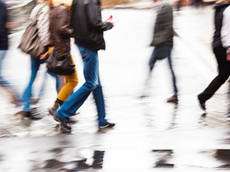Even the brains of people with anxiety states can get used to fear

Fear is a protective function against possible dangers that is designed to save our lives. Where there are problems with this fear mechanism, its positive effects are cancelled out: patients who have a social phobia become afraid of perfectly normal, everyday social situations because they are worried about behaving inappropriately or being thought of as stupid by other people. Scientists from the Centre for Medical Physics and Biomedical Technology and the University Department of Psychiatry and Psychotherapy at the MedUni Vienna have now discovered that this fear circuit can be deactivated, at least in part.
In a study by Ronald Sladky, led by Christian Windischberger (Centre for Medical Physics and Biomedical Technology), which has recently been published in the magazine PLOS One, functional magnetic resonance tomography was used to measure the changes in the brain activity of socially phobic patients and healthy test subjects while they were looking at faces. This experiment simulates social confrontation with other people without actually placing the individual in an intolerable situation of anxiety.
Permanent confrontation has a diminishing effect on anxiety
"The study demonstrated that people with social phobia initially exhibit greater activity in the amygdala and in the medial, prefrontal cortex of the brain, however after a few faces this activity recedes," says Sladky. This contradicts the assumption made thus far that the emotional circuit of socially phobic individuals is unable to adapt adequately to this stress-inducing situation.
Permanent confrontation with the test task not only led to a solution to the "problem" being found more quickly among the patients with anxiety, but also to some areas of the brain being bypassed which otherwise were over-stimulated, a characteristic typical of anxiety. Says Sladky: "We therefore concluded that there are functional control strategies even in the emotional circuits of people with social phobia, although the mechanisms take longer to take effect in these individuals. The misregulation of these parts of the brain can therefore be compensated to a degree."
These findings could, according to Sladky, provide a starting point for the development of personalised training programmes that will help affected individuals to conquer unpleasant situations in their everyday lives more effectively. In Austria, around 200,000 people a year are affected by some form of social phobia. The number of people who suffer this condition without seeking help for it is likely to be very high, since many affected individuals fail to seek assistance or do so only too late as a result of their anxiety.
More information: Sladky, R. et al. Increased Neural Habituation in the Amygdala and Orbitofrontal Cortex in Social Anxiety Disorder Revealed by fMRI. PLoS ONE 7(11): e50050. doi:10.1371/journal.pone.0050050

















